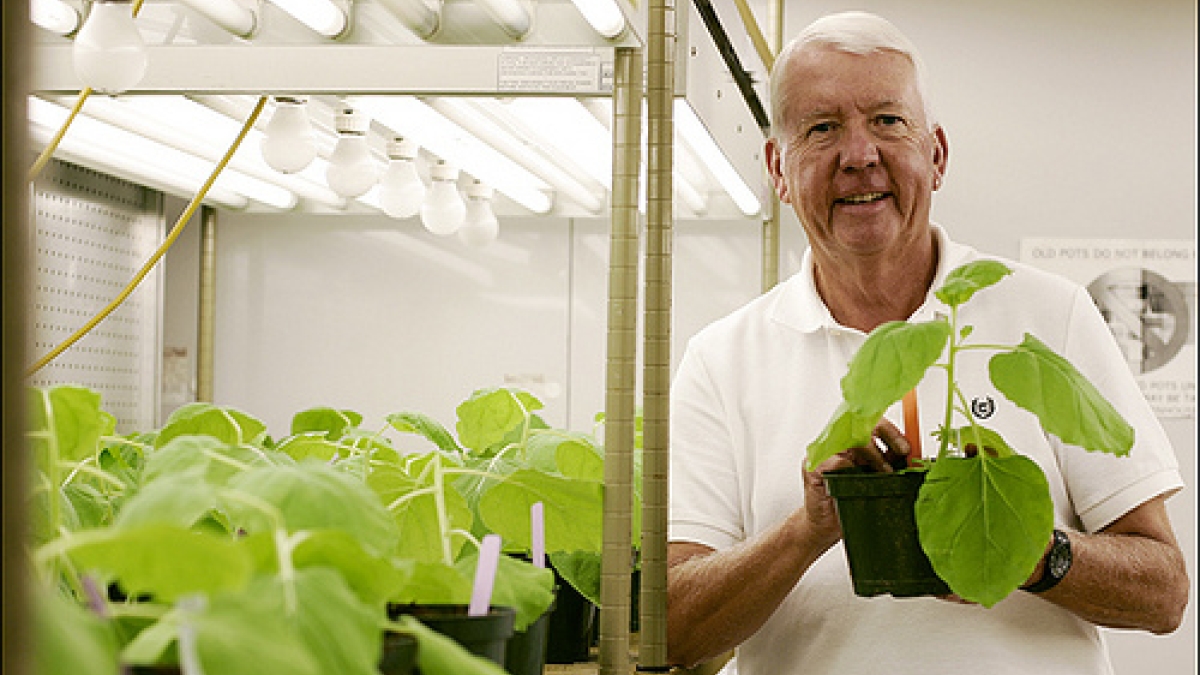Arntzen to present at national biodefense meeting

Influenza. Airborne pathogens. Biothreats. Global Threats.
The American Society for Microbiology will address a range of issues and topics critical to worldwide biosecurity, such as the pandemic threat of H7N9 influenza, as well as effective countermeasures being developed by the research community.
Among the key presenters is ASU Regents’ Professor Charles Arntzen, who will discuss the history and promise of “plant pharming” in a presentation at the 2014 American Society for Microbiology’s Biodefense and Emerging Diseases Meeting, to be held from Jan. 27-29 in Washington, D.C.
In a meeting session titled The Modern Day Victory Garden: Advances In Plant Based Production of Biologics for Disease Countermeasures, Arntzen will provide a talk called Overview of the History and Promise of Plant Pharming.
More than 30 years ago, plants were first altered using recombinant DNA technology. Since then, the technology has transformed modern day agriculture, medicine and the production of new pharmaceuticals.
“There has been an exponential increase in the numbers and types of antibodies, antigens, human/animal proteins, growth factors and other pharmaceutically interesting candidates that have been expressed and purified from plants,” said Arntzen, a research scientist at ASU’s Biodesign Institute and professor in the School of Life Sciences.
“Much of 'plant pharming' has been driven by rapid advancements in the technology for gene expression in plants, for protein purification technology from plants and for host plant engineering of more 'humanized' protein products compatible with our bodies. From the very start, the U.S. Department of Defense made investments that gave a critical jump-start to the commercial scale production of plant-based proteins.”
Biodesign scientists in the institute’s Center for Infectious Diseases and Vaccinology are hard at work tackling new technologies to combat infectious diseases, and safeguard the population against emerging biothreats. Arntzen’s achievements have straddled both the human health and defense arena, including producing new Norwalk virus vaccines in tobacco plants, safeguarding against mucosal transmission of HIV and demonstrating plant-based therapeutic protection against Ebola virus and plague.
Arntzen was elected to the U.S. National Academy of Sciences in 1983 and to the National Academy of Sciences in India the following year. He is a fellow of The American Association for the Advancement of Science (AAAS) and also of the American Society of Plant Biologists, received the Award for Superior Service from the U.S. Department of Agriculture for international project leadership in India, the American Society of Plant Biology Leadership in Science Public Service Award in 2004 and the Botanical Society of America Centennial Award in 2007.
The ASM Biodefense and Emerging Diseases Research Meeting brings together individuals who are carrying out research to defend against the growing threat of bioterrorism and decision-makers shaping the future biodefense research agenda, recognizing that emerging infectious diseases serve as a paradigm for handling the public threat of bioterrorism. To learn more, go to: www.asmbiodefense.org